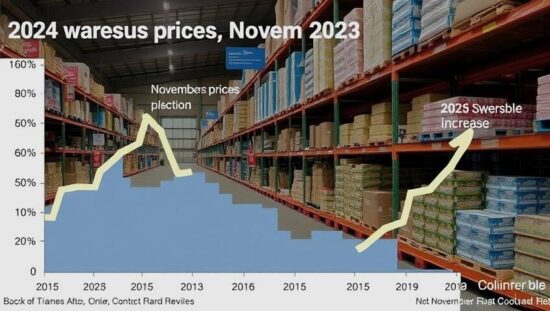Producer Prices of Industrial Goods Rise 0.1% in November 2024
The producer prices of industrial goods in Germany rose by 0.1% in November 2024 compared to the same month a year earlier, marking the first increase since June 2023, according to the German Federal Statistical Office (Destatis). This is a positive development, following a 1.1% decline in October 2024 compared to the same month a year earlier.
Investment goods, consumption goods, and intermediate goods drove the price increase, while energy prices fell by 2.4% year-on-year. Excluding energy, the producer prices of industrial goods rose by 1.3% year-on-year and fell by 0.1% month-on-month.
Energy prices, in particular, were influenced by the significant decline in the prices of mineral oil products, which fell by 8.6% year-on-year, and light heating oil, which was 13.2% cheaper than in November 2023. Gas prices rose by 1.1% month-on-month, while electricity prices fell by 3.1% year-on-year but rose by 4% month-on-month.
The prices of investment goods, such as machines, rose by 1.9% year-on-year, with prices of cars and car parts increasing by 1.4%. Consumption goods, including food, were 2.4% more expensive than in November 2023, with significant price increases for butter (42.9%), sweets (23.9%), and beef (16.5%). On the other hand, prices of wheat flour, pork, and pig meat fell.
Intermediate goods, such as natural stone, sand, and Kaolin, rose by 4.4% year-on-year, while prices of wood and wood products, including sawn wood, remained relatively stable, with some fluctuations.
Metal prices remained largely unchanged, with copper and copper semi-finished products rising by 8.3% year-on-year, but prices of raw iron, steel, and ferroalloys falling by 7.4%. Chemical raw materials, on the other hand, fell by 1.6% year-on-year, with prices of glass and glassware, as well as animal feed, declining by 4.8% and 4.1%, respectively.





